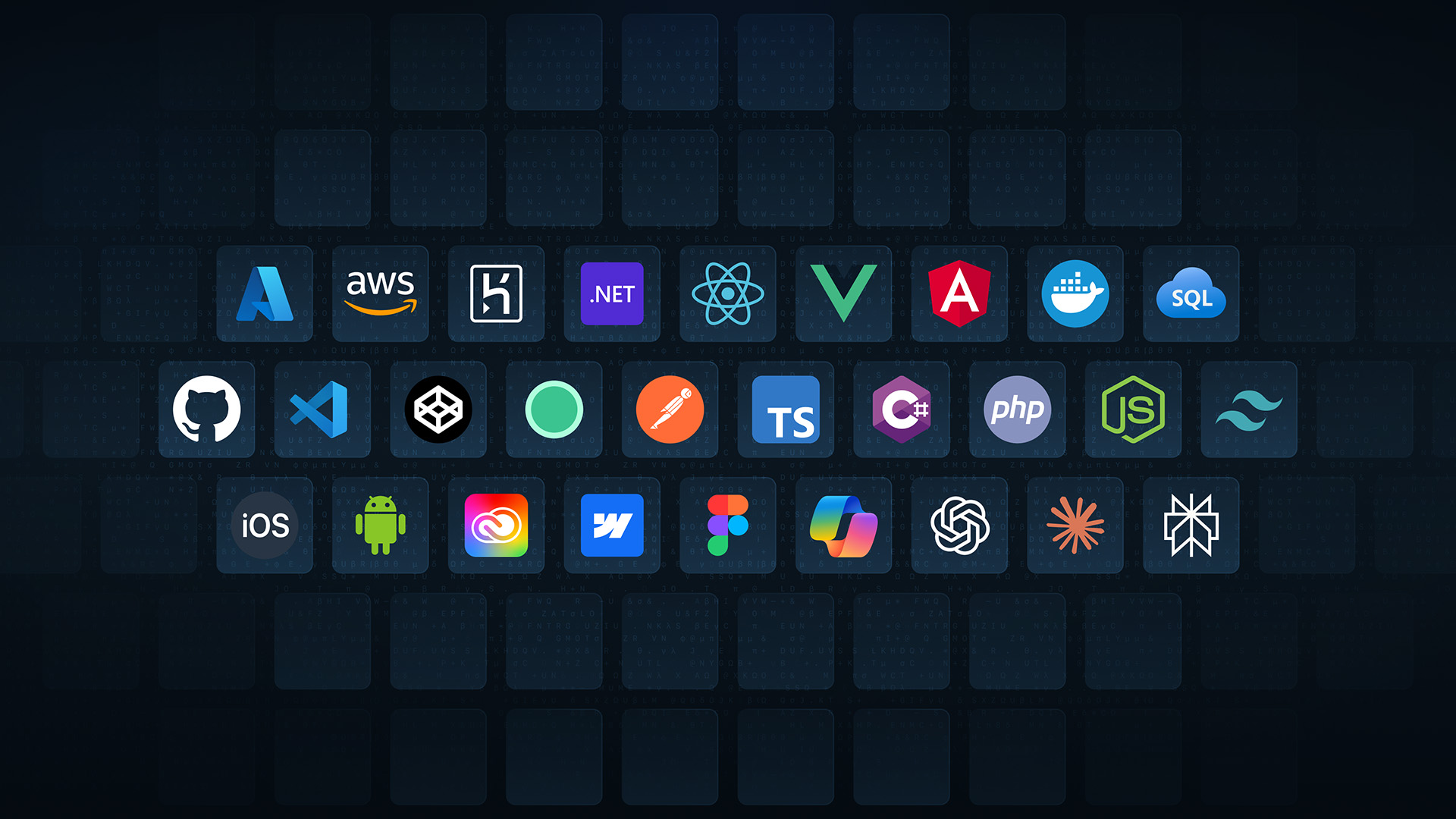
The AI + Tech Stack That Turns Big Ideas Into Working Software
Most software projects don’t crash because of one giant mistake. They crash in slow motion — death by a thousand small missteps. An unclear spec here. A missed dependency there.
Code that works but will need to be reworked later. Weeks pass, budgets bloat, and launch dates slip.
At Big Pixel, our job is to make sure that doesn’t happen to you.
That’s why we’ve built an internal stack of AI-driven tools and processes that eliminate the slow leaks before they sink the ship. You won’t see them in a proposal.
You don’t need to manage them. But you will feel the difference in how your project moves, and how it ends — on time, on budget, and ready to perform.
We’re not in the business of chasing whatever shiny new tool pops up this quarter.
Every piece of our stack has been battle-tested in real projects, refined until it’s part of our muscle memory, and proven to deliver measurable results.
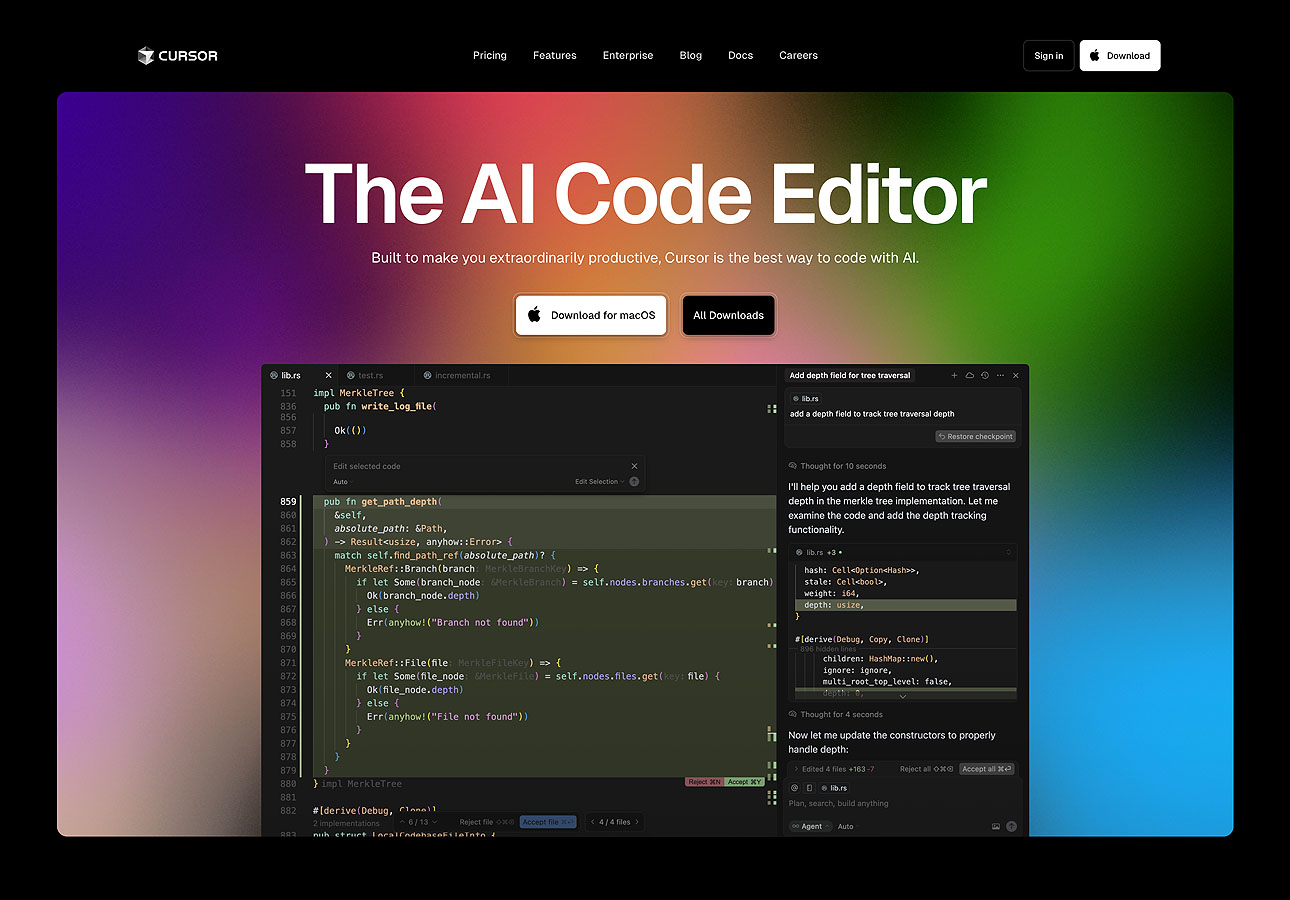
From Blank Page to First Commit — Without Wasting Weeks
Here’s the reality: a massive chunk of development time on most projects isn’t spent solving unique business challenges.
It’s spent on repetitive patterns, boilerplate code, and fixing issues that should have been caught earlier.
We don’t accept that waste as a given.
- Cursor is our AI-first IDE. It doesn’t just suggest code — it anticipates problems, recommends more efficient architecture, and builds out components that are already aligned with our internal standards.
- GitHub Copilot works in parallel, filling in documentation as we go, writing relevant test cases, and streamlining code that might otherwise take hours to refine.
The synergy matters: Cursor keeps the big picture clean. Copilot handles the fine details.
Together, they strip weeks of rework out of the build cycle. Without them, the same features might take twice as long — and cost twice as much — to get to a stable, testable state.
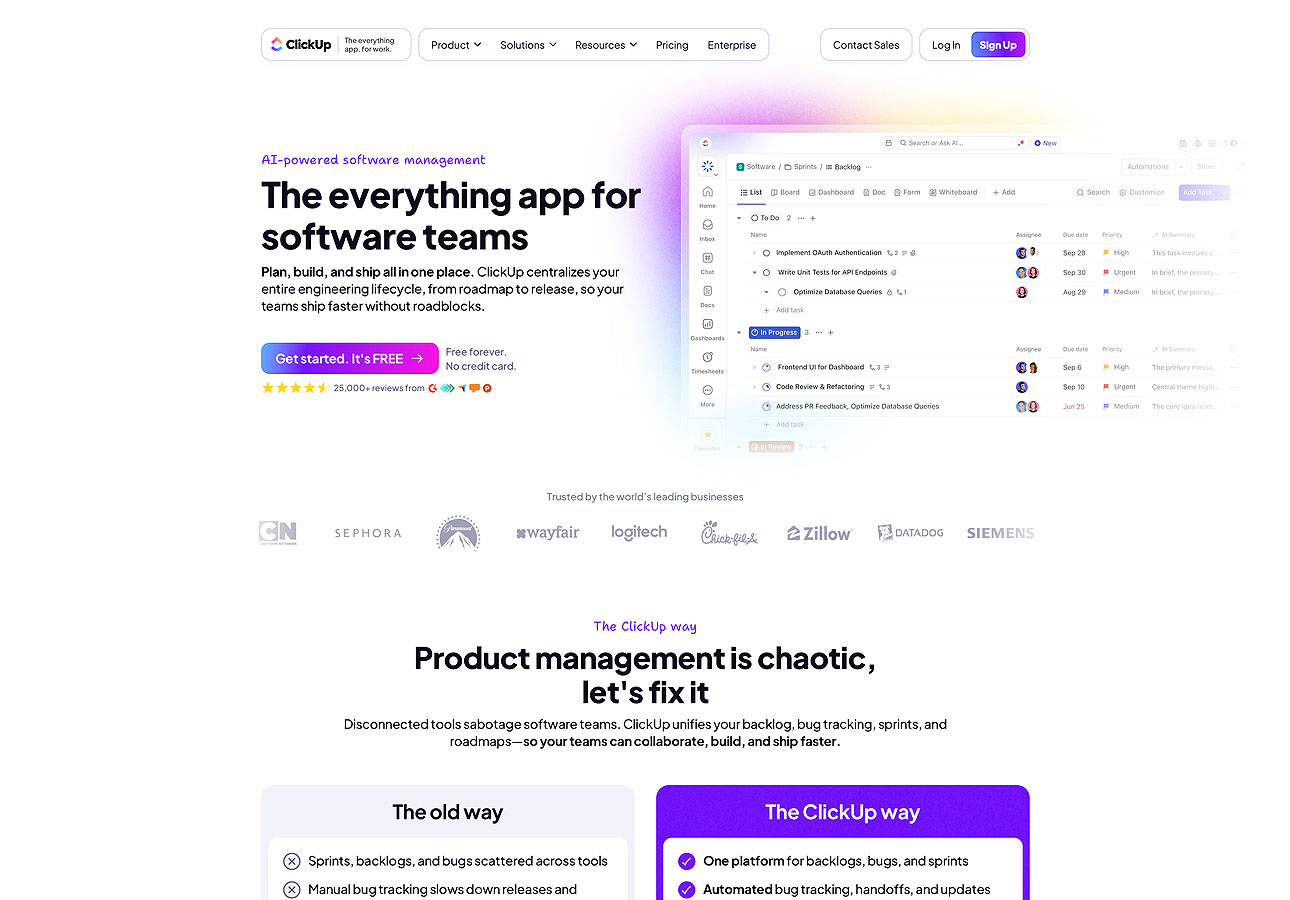
Keeping Every Moving Part in Lockstep
Custom software isn’t built in a neat straight line. Design is refining screens while development is coding features, while QA is finding bugs, while integrations are happening in the background.
Without a shared source of truth, things slip.
ClickUp, supercharged with AI summaries, is our command center. It’s where every milestone, dependency, and deadline lives.
The magic isn’t just in having a project tracker — it’s in how it’s used:
- Our developers, designers, and PMs see the same real-time status, so no one is building in the dark.
- Clients get distilled updates that are clear, actionable, and relevant — no technical jargon, no fluff.
It’s the difference between wondering where your project stands and knowing exactly where it is, what’s next, and what’s on track.
That’s not just nice to have — it’s how trust is built and kept.
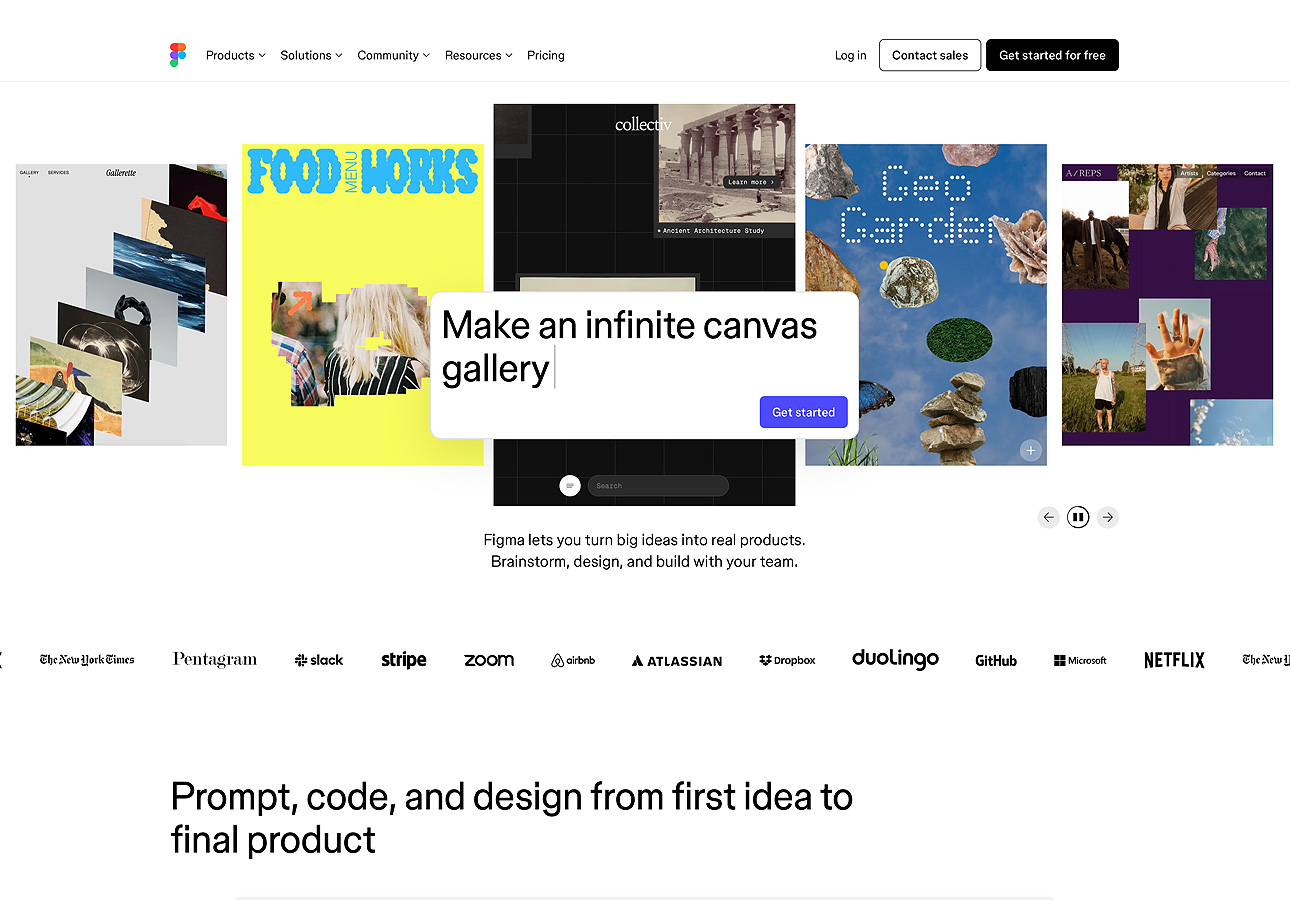
Design That’s Ready for Day One of Development
In most teams, design handoff is where timelines start to bleed. A file looks great in theory, then development starts and the cracks show — layouts break, components don’t fit, edge cases weren’t considered.
We’ve closed that gap. Figma, paired with AI-assisted plugins, lets us stress-test designs before they ever leave the design phase.
We can:
- Explore multiple layout variations in minutes, not hours.
- Check responsiveness and usability across scenarios.
- Make feedback-driven changes in real time with the client watching.
By the time a design reaches our developers, it’s not just “approved” — it’s build-ready.
That single shift eliminates weeks of expensive back-and-forth that derail projects without you realizing why.
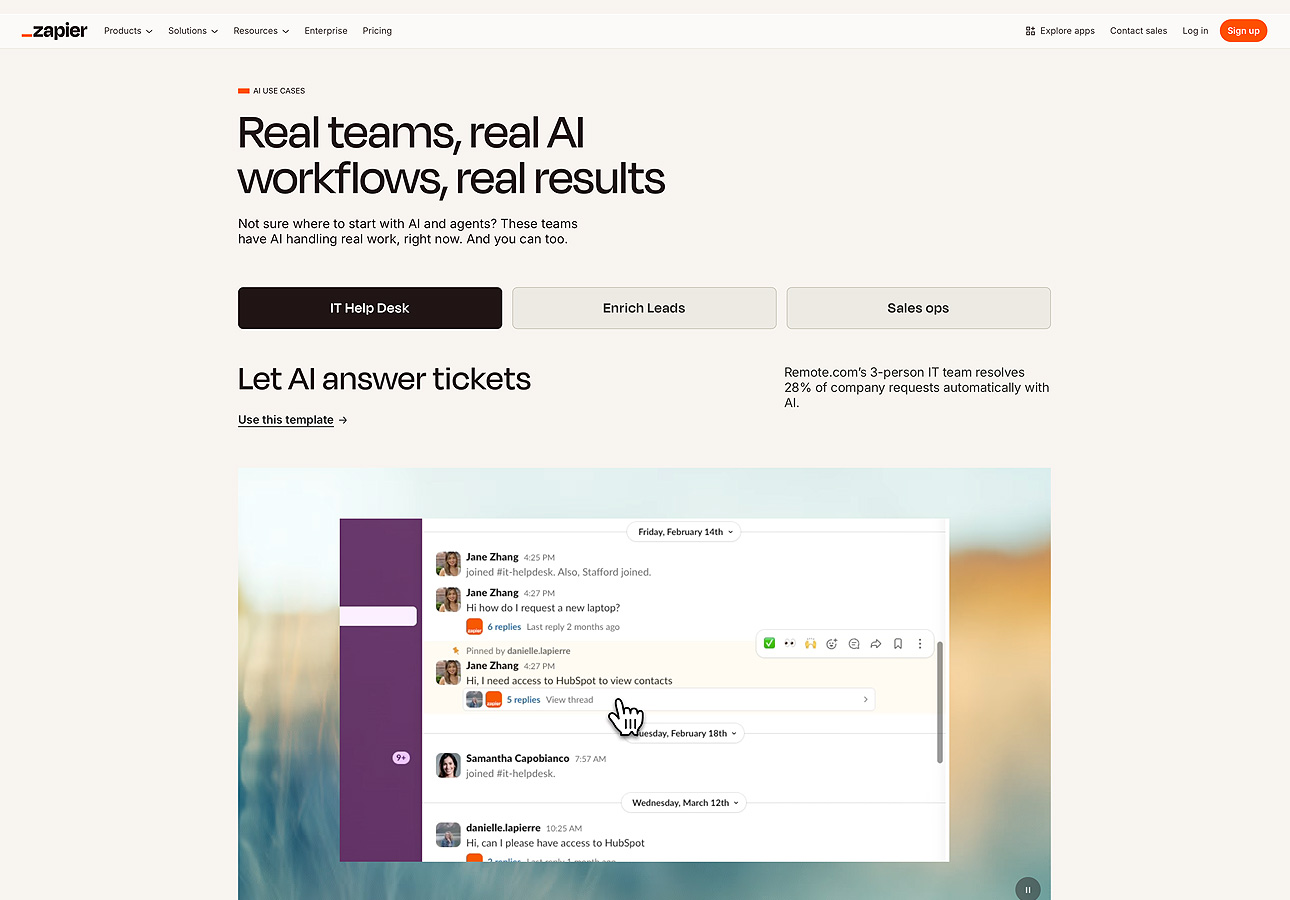
Progress Without the Bottlenecks
A project can lose momentum in dozens of invisible ways: waiting for a file, syncing a dataset, sending status updates.
Each delay is small — until they stack up.
That’s why we run a silent automation layer through Zapier AI.
These tools handle the background work that’s critical but doesn’t need a human hand. They:
- Sync data instantly between systems.
- Trigger workflows and alerts the moment something’s ready.
- Keep dashboards accurate without manual updates.
You don’t see those processes happening. But you feel them — in the steady, uninterrupted pace of progress.
Why This Stack Works When Others Don’t
Every tool we’ve named is powerful on its own. But that’s not what makes them our unfair advantage.
The advantage is in how we’ve integrated them so each strengthens the others.
Cursor and Copilot accelerate and improve the quality of code. Figma ensures the code is building toward a design that’s already been validated.
ClickUp keeps the entire ecosystem aligned. Automation clears the friction in between.
That’s why we can commit to fixed-fee projects without fear of scope creep. It’s why our launches are predictable.
And it’s why our clients don’t just get working software — they get software that works the way it was meant to from the start.
We believe that business is built on transparency and trust. We believe that good software is built the same way.
This stack is one of the ways we make that belief tangible in every project.
You’ll never watch Cursor catch a bug before it’s written. You won’t see Zapier moving data from one system to another in the background. You won’t notice ClickUp’s AI taking a dense technical note and rewriting it in language you understand.
But you’ll feel it in the way your project runs — in the absence of delays, in the clarity of communication, in the confidence you have that launch day will be what we said it would be.
That’s our unfair advantage. And when you work with Big Pixel, it’s yours too.

The AI + Tech Stack That Turns Big Ideas Into Working Software
Most software projects don’t crash because of one giant mistake. They crash in slow motion — death by a thousand small missteps. An unclear spec here. A missed dependency there.
Code that works but will need to be reworked later. Weeks pass, budgets bloat, and launch dates slip.
At Big Pixel, our job is to make sure that doesn’t happen to you.
That’s why we’ve built an internal stack of AI-driven tools and processes that eliminate the slow leaks before they sink the ship. You won’t see them in a proposal.
You don’t need to manage them. But you will feel the difference in how your project moves, and how it ends — on time, on budget, and ready to perform.
We’re not in the business of chasing whatever shiny new tool pops up this quarter.
Every piece of our stack has been battle-tested in real projects, refined until it’s part of our muscle memory, and proven to deliver measurable results.

From Blank Page to First Commit — Without Wasting Weeks
Here’s the reality: a massive chunk of development time on most projects isn’t spent solving unique business challenges.
It’s spent on repetitive patterns, boilerplate code, and fixing issues that should have been caught earlier.
We don’t accept that waste as a given.
- Cursor is our AI-first IDE. It doesn’t just suggest code — it anticipates problems, recommends more efficient architecture, and builds out components that are already aligned with our internal standards.
- GitHub Copilot works in parallel, filling in documentation as we go, writing relevant test cases, and streamlining code that might otherwise take hours to refine.
The synergy matters: Cursor keeps the big picture clean. Copilot handles the fine details.
Together, they strip weeks of rework out of the build cycle. Without them, the same features might take twice as long — and cost twice as much — to get to a stable, testable state.

Keeping Every Moving Part in Lockstep
Custom software isn’t built in a neat straight line. Design is refining screens while development is coding features, while QA is finding bugs, while integrations are happening in the background.
Without a shared source of truth, things slip.
ClickUp, supercharged with AI summaries, is our command center. It’s where every milestone, dependency, and deadline lives.
The magic isn’t just in having a project tracker — it’s in how it’s used:
- Our developers, designers, and PMs see the same real-time status, so no one is building in the dark.
- Clients get distilled updates that are clear, actionable, and relevant — no technical jargon, no fluff.
It’s the difference between wondering where your project stands and knowing exactly where it is, what’s next, and what’s on track.
That’s not just nice to have — it’s how trust is built and kept.

Design That’s Ready for Day One of Development
In most teams, design handoff is where timelines start to bleed. A file looks great in theory, then development starts and the cracks show — layouts break, components don’t fit, edge cases weren’t considered.
We’ve closed that gap. Figma, paired with AI-assisted plugins, lets us stress-test designs before they ever leave the design phase.
We can:
- Explore multiple layout variations in minutes, not hours.
- Check responsiveness and usability across scenarios.
- Make feedback-driven changes in real time with the client watching.
By the time a design reaches our developers, it’s not just “approved” — it’s build-ready.
That single shift eliminates weeks of expensive back-and-forth that derail projects without you realizing why.

Progress Without the Bottlenecks
A project can lose momentum in dozens of invisible ways: waiting for a file, syncing a dataset, sending status updates.
Each delay is small — until they stack up.
That’s why we run a silent automation layer through Zapier AI.
These tools handle the background work that’s critical but doesn’t need a human hand. They:
- Sync data instantly between systems.
- Trigger workflows and alerts the moment something’s ready.
- Keep dashboards accurate without manual updates.
You don’t see those processes happening. But you feel them — in the steady, uninterrupted pace of progress.
Why This Stack Works When Others Don’t
Every tool we’ve named is powerful on its own. But that’s not what makes them our unfair advantage.
The advantage is in how we’ve integrated them so each strengthens the others.
Cursor and Copilot accelerate and improve the quality of code. Figma ensures the code is building toward a design that’s already been validated.
ClickUp keeps the entire ecosystem aligned. Automation clears the friction in between.
That’s why we can commit to fixed-fee projects without fear of scope creep. It’s why our launches are predictable.
And it’s why our clients don’t just get working software — they get software that works the way it was meant to from the start.
We believe that business is built on transparency and trust. We believe that good software is built the same way.
This stack is one of the ways we make that belief tangible in every project.
You’ll never watch Cursor catch a bug before it’s written. You won’t see Zapier moving data from one system to another in the background. You won’t notice ClickUp’s AI taking a dense technical note and rewriting it in language you understand.
But you’ll feel it in the way your project runs — in the absence of delays, in the clarity of communication, in the confidence you have that launch day will be what we said it would be.
That’s our unfair advantage. And when you work with Big Pixel, it’s yours too.



